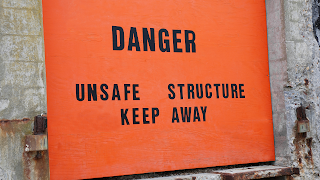Cultivating Self-Mastery
We are so selfish, self this and self that. We need to focus on God are the
words I heard from someone while participating in group coaching. I cringed in
my chair as I discerned the inner outcry from those needing help. I began to
hurt as I felt the pain the guests were in and the direction they needed. God
is in us, so why aren’t we encouraged to get in tune with who we
are? Why are we still speaking of the creator as an entity outside
of us? Why are we still quoting scripture to people without cracking the codes
they are? I could feel it in the room that the participants needed strategy,
and once again, they were failed and left to figure their way through the loads
of horrible advice they received.
“Self-Mastery is often defined as
self-control, the ability to exert a strong will against your impulses to steer
your future. Self-mastery requires having a vision for yourself. We learn
self-mastery by getting out of our way.” When we fail to control our
lives, we are blown off course by feelings, urges, and circumstances. Take it
from me. I once had a Ph.D. in allowing emotional setbacks to hinder my
progress. Self-mastery awakened me, and I no longer carry that degree.
Meditation is a practice I participated in early on my healing journey. I
remained consistent, and I saw progress faster than I expected. It was the
first step in discovering the Kingdom within.
Why is this Important?
Self-mastery helps us to have
clarity on what is important to us. It teaches us mindfulness, living in the
present moment. Being mindful creates more room in our lives for feelings of
gratitude, love fulfillment, joy, and happiness. Practicing
gratitude alone is a game-changer. Invest in a gratitude journal and intentionally
use it every morning. Documenting what you are grateful for and thinking about
those things will set the tone for your day. Couple journaling with meditation;
there is no shaking you.
How Do I Cultivate Self-Mastery?
I thought you’d never ask. I am
going to list five steps to do so. There may be more, but here is a great
start.
1.
Talk to yourself
Yes, you read that right. I know you
grew up being told crazy people talk to themselves. But generational ignorance
like that is why we can not tap into what lies within. Inner dialogue helps you
make sense of the world; it allows you to observe your thoughts, becoming more
self-aware, and causes you to think about your thoughts. I serve as a counselor
also, and the premise of my courses is that thinking errors birth negative
emotions, and negative emotions birth negative behavior. So yes, talk to
yourself and practice thought noticing.
2.
Make peace with your past
Self-mastery means not allowing past
negative experiences the power of emotional collateral to spark present and
future fires. Interpreting an event in a new way that reduces negative
responses will completely change cell chemistry; whenever we respond to a particular
occasion differently. Every time we experience triggers, we will find ourselves
responding the same if we do not challenge what is not serving us. Let’s
rewrite that narrative. It is HARD to pick up anything new when your hands are
full of burdens. Emotional Intelligence is vital in self-mastery. Organize
those experiences as they come, process them, and develop a healthier
perspective. You do not need to be held back by what did or did not happen any
longer. The world needs you.
3. Keep
a journal
To know me is to know this is my
favorite part. As a certified journal therapist, I pride myself on the healing
benefits of getting everything out on paper, reviewing your thought patterns,
and uncovering holes in your thinking. The more we journal, the more aware we
are of our behaviors and thought patterns. Assessments such as these give us
room to change and grow. Laying out your goals in writing is like drafting a
blueprint for new construction.
4. Have
an honest assessment of your strengths and weaknesses
Sitting with it is where you own it
all, even those ugly parts. Accountability is where you admit you have a
problem. People who hide behind who they think they should be, have not
mastered themselves. They are merely caught up in a facade desiring to
break free, but they are so far gone it seems hopeless. They hold on because
revealing their actual shadow may cost them, and because they already battle
with a level of rejection, this part may be the hardest.
5. Take
an active approach in life
Stop “waiting on God” God is in you.
He has downloaded a vision for you. What are you waiting for
exactly? Myles Munroe out it best “everything you need to accomplish
your purpose is already in you” the problem is we do not go within; we would instead
procrastinate all in the name of I’m not going before God. What exactly does
that mean? And how many years have you said that? You will be waiting, and
someone else will have your vision running with it.
So rather than spectate, perform.
When situations call for a response, a self-mastered person takes the
initiative and steps right in. There is absolutely no room for passivity. JUST
DO IT!
Putting yourself first is not
a selfish act. Begin today mastering thyself. You will be amazed at the
potential you awaken, the healing that will take place, and the patience you
will birth for yourself. Understanding who you are, growing, and making
adjustments are significant in this hour. Far too long, we have walked around
at ground level; it is time to fly.
Thanks for reading! Please share it
on your social media platforms spreading organizational health for lifelong
overcoming if you enjoyed this article.


.png)
.png)
Comments
Post a Comment